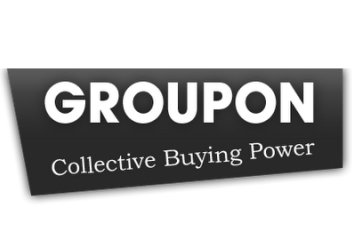We all have them. Those apps we open without thinking. Not because we need anything in particular, but because they feel… safe, in some…
Google’s Groupon deal makes no sense
 Faith Merino at VatorNews reported on Monday that Google had purchased Groupon for $2.5 billion:
Faith Merino at VatorNews reported on Monday that Google had purchased Groupon for $2.5 billion:
“… according to an unnamed insider who spoke with VatorNews. Neither Google nor Groupon could be reached for comment to confirm the report, but Vator’s source is reliable and the report falls in line with the recent string of Groupon acquisition rumours.”
On Tuesday Kara Swisher at All Things D reported that her sources said that Google would pay $5.3 billion plus a $700 million earnout if Groupon meets sales targets.
“… it is a killer move for Google-despite the high price-given it has long tried to enter the local advertising space, with decidedly mixed results.”
The New York Timescreported that its sources said Google will pay $6 billion for Groupon.
“Google made an initial bid of $3 billion to $4 billion, these people said. But in the face of Groupon’s resistance, Google raised its offer to $5 billion to $6 billion. The company is unlikely to offer more than that, according to one of the people with knowledge of the situation.”
My take is the deal doesn’t make sense for Google. Groupon relies on a large number of people to make the sales for Groupon to work.
Google is a business that relies on machines and algorithms — not on managing large numbers of sales people.
Caroline McCarthy at CNet News makes a similar point:
“Groupon’s ‘secret sauce’ is not its technology … but its massive sales force and how that sales force is organised. It’s not Google’s usual cup of tea, but it’s one of Google’s own weak spots.”
But she writes that Google needs to move beyond engineers and beef up its direct sales force. She quotes David Ambrose, co-founder of Scoop St, a Groupon clone, that Google might pay more than $2.5 billion because “Google has never really been able to do direct sales well at all”.
I don’t believe that Google can buy a direct sales force capability. If it does, that effort will fail. Google’s culture is engineering based and the sales force will never have the clout of engineering.
Just because it makes sense to have a strong direct sales force doesn’t mean that it makes sense for a company to acquire one. Company culture always trumps logic and reason. And company culture is the least agile part of any organization.
And Google’s engineering culture is deeply wired. For example, Google has been encouraged by vocal observers to buy a newspaper, such as the New York Times. But again, something like that would never happen because Google doesn’t want to manage editors, journalists, foreign news bureaus, etc. It knows how to manage servers and software.
At the bottom of every Google news page you see the following:
“The selection and placement of stories on this page were determined automatically by a computer program.”
Placement was not determined by a person but by an algorithm.
Algorithms and machines are a far more scalable and profitable business than a people based business such as a newspaper, or Groupon.
In addition, the higher costs of doing business with a large sales force will lower Google’s profitability and that will affect its stock price. In mid-morning trading Tuesday Google [GOOG] was down 4% or $23.45 to $558.66 in reaction to the news.
